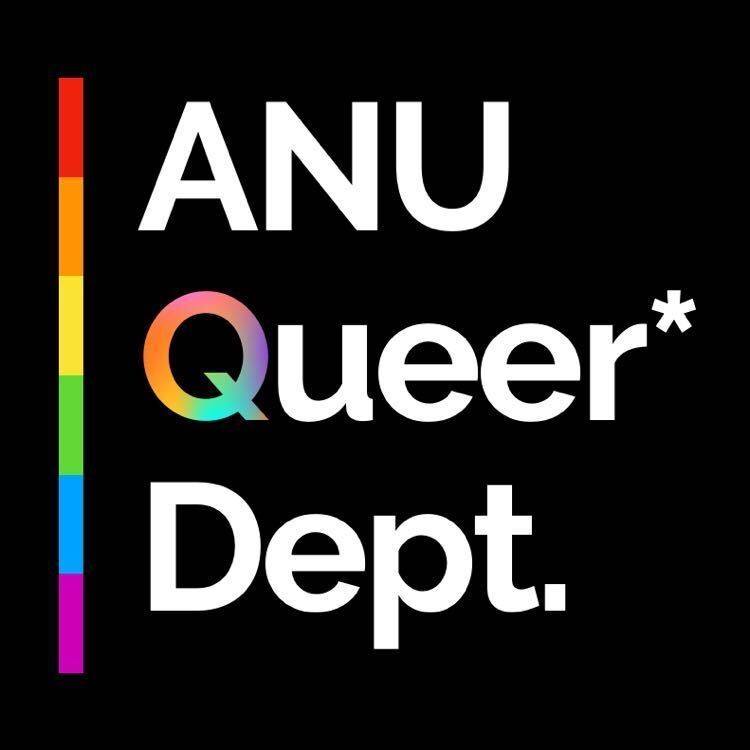The Queer Department held its Annual General Meeting this past Tuesday, where the collective passed numerous motions concerning the future of the Department. Primarily, the collective sought to commit to anti-racism and transgender inclusion in the year ahead.
During the AGM, two motions passed that proposed that the department executive and committee to attend anti-racism training and trans and non-binary inclusitivity training early next year and report back by the end of term 1, 2022.
Another motion called for the department to conduct a Queerphobia Report for completion by the end of next year. Finally, the collective voted to make the inclusive language guide drafted this year “an enforceable document” within the university.
Members of the existing executive also shared a statement of concern about the Department. The statement was passed unanimously at the meeting and asked the 2022 Department leadership to reflect upon it by week 4 of the next semester.
The signatories prefaced the statement with the fact that “the majority” of this year’s department “have chosen not to apply for a position in, and therefore effectively chosen to leave, the 2022 Queer* Department leadership.”
Jehan Jayawickrama, the current Community Coordinator, expressed that “the Queer* Department does not effectively represent Queer* BIPOC students at ANU and has “maintained their focus on white Queer* people rather than the BIPOC members of our community.” Jayawickrama noted that Li’s work to “increase intersectionality” has been “incredible” but that the “Department leadership needs to do better” and “address their internal biases and the performative nature of their approach to BIPOC inclusivity.”
Caspar Wallen, who was “the only trans member of the 2021 executive,” as Deputy Officer, similarly notes that within the Department, “diverse queer experiences are displayed and celebrated in a performative and tokenistic manner.” He felt that he was “expected to be an all-knowing source of information on transgender issues” reaching the point that he “felt forced” to take on all trans-related issues and was concerned that if he did not “it would not be done in a way that respected trans identities.”
Wallen suggested that “a balance must be found between uplifting trans*, specifically BIPOC trans* people and ensuring they are not burdened with caring for the entire community.”
Secretary Bella Humphreys, meanwhile, criticised the department for being “inherently exclusive in terms of socio-economic status. She contended that “self-proclaimed ‘safe’ spaces’ often were exclusive in terms of price and accessibility” and called on the department to “address the inherent price barrier and exclusion within events.”
Additionally, Humphreys noted that “SES intersects substantially with other marginalised identities, and these barriers need to be overcome to even step in the direction of a safe space.”
Social Media Manager Wilcox called for change in the way the committee is run, in regards to communication and wellbeing, otherwise “the collective will always have an underlying exclusivity, harbouring an unsafe environment.”
The four signatories together highlighted, within the Department, a lack of clear communication, executive members taking over other member’s projects “with no prior communication,” and “unnecessarily aggressive behaviour towards other department members in one-on-one conversations.”
They also emphasised the “disappointingly prevalent performative attitude” within the leadership team, particularly in relation to issues impacting BIPOC students. The statement acknowledged that these issues extend to the broader queer community, too, which is “inherently exclusive and rooted in white supremacy.”
In an interview with Woroni, current officer Vincent Li stressed the need to “put BIPOC voices front and centre” in pursuing BIPOC inclusion and to not speak for international students. He added that the Department’s leadership “need(s) to consult BIPOC.”
Jayawickrama, in the same interview, concurred that BIPOC students “need to be involved in decision making, rather than just using them as a figure head” and that they “need to be listened to” and “respected.”
In response to the statement, incoming Officer Xya Romilio outlined that in 2022, it is “the primary goal to get more diverse community engagement.” Romilio strives to “actively liaise with BIPOC, Indigenous, ISD, Women’s, and DSA departments, as their insights are invaluable to building a stronger and more diverse community within the future.”
In addition, next year’s team will work to “improve methods of communications” to ensure functionality and “effective leadership” and reduce hostility within the Department. Romilio concluded that the 2021 Department’s shortcomings “to create a space in which inclusivity and diverse engagement thrive” falls on the “2022 leadership team” and that it is “our core directive” to avoid a similar outcome next year.
The interviewees highlighted that none of these issues raised are new for the Department, and have persisted over the past five years at least. Perhaps this feedback will provide clearer guidance and accountability for the Department in tackling these ongoing, systemic issues.
We acknowledge the Ngunnawal and Ngambri people, who are the Traditional Custodians of the land on which Woroni, Woroni Radio and Woroni TV are created, edited, published, printed and distributed. We pay our respects to Elders past and present. We acknowledge that the name Woroni was taken from the Wadi Wadi Nation without permission, and we are striving to do better for future reconciliation.
